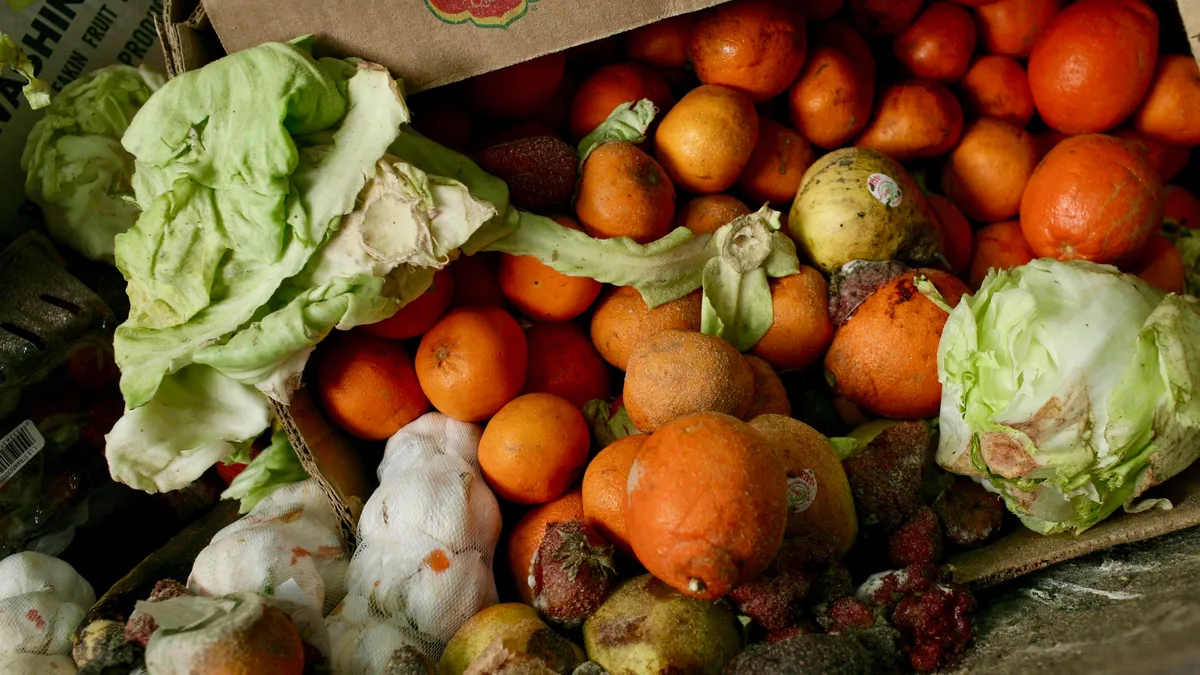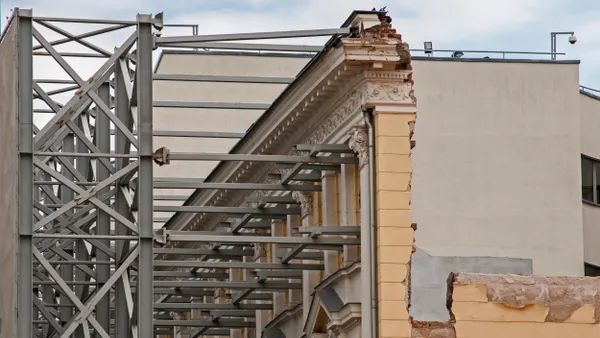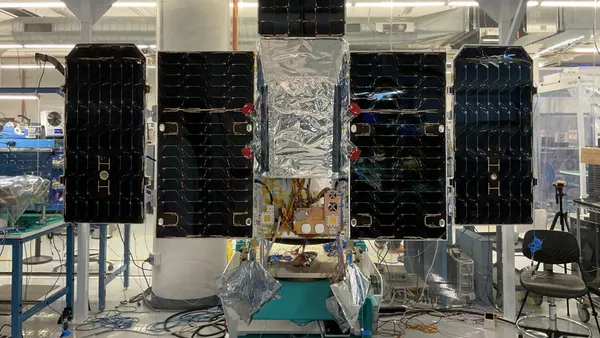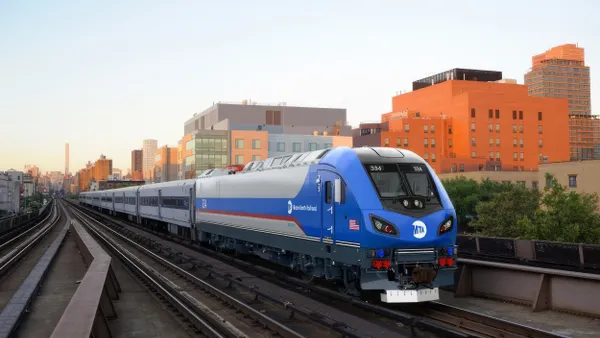Dive Brief:
- The city of Chicago has launched its first organics drop-off program meant to collect “all kinds of food scraps” at 15 locations.
- The program aims to make composting accessible to residents in a wide geographic area of the city, while also helping Chicago meet goals in its climate action plan and increase its material diversion rate, the mayor’s office announced Monday.
- The Department of Streets and Sanitation will collect the material and send it to a transfer station, where it will then be turned into compost at the nearby Harbor View Composting Facility operated by Whole Earth Compost.
Dive Insight:
The program is among Chicago’s recent efforts to improve waste diversion. Chicago developed a formal waste strategy in 2021, which didn’t set specific diversion targets but did identify organics drop-off programs as an important facet.
Chicago also released a climate action plan in 2022 that aims to reduce the city's carbon emissions 62% by 2040. Introducing a citywide organics collection system is among the recommendations in that plan. Chicago had initially considered launching some version of that program as late as 2040, but sped up the timeline based on feedback from residents who were interested in the service, according to the action plan.
“Diverting food scraps for composting is one of the easiest and most impactful ways for individuals and cities to address the climate crisis,” said Mayor Brandon Johnson in a statement.
Last year, the city announced a community composting program where residents can drop off some types of food scraps at six community gardens. That project, done in partnership with nonprofit NeighborSpace, was funded by the city and a Natural Resources Defense Council grant.
The new city-run food scrap drop-off program announced on Monday is meant to complement the community garden composting program. The two programs “are distinctly different in the kinds of material accepted,” said Mimi Simon, director of public affairs for DSS. The garden drop-off locations don’t accept items like meat or bones, while the new drop-off will take almost any kind of food waste, including leftovers, she said. No food packaging or plastic bags are accepted.
The new drop-off program is also meant to be more accessible, as the 15 sites are located at DSS facilities throughout a larger area of the city than the community garden program, she said.
DSS hasn’t set goals for the drop-off program, but Simon said it plans to monitor sign-ups and create program metrics as more residents learn about the service.
Organics diversion is just one aspect of the “suite of policies and actions aimed at minimizing waste disposal and its negative environmental impacts” that the city will pursue, said Angela Tovar, Chicago’s chief sustainability officer, in a statement.
Chicago is also working to improve its residential recycling program and has plans for other waste diversion initiatives outlined in its waste strategy. Tovar also mentioned recent work with the newly established Mayor’s Office of Climate and Environmental Equity, meant to oversee the city’s climate action plan and address environmental justice issues. Johnson, who was inaugurated in May, has said environmental justice is a major priority for his time in office.













